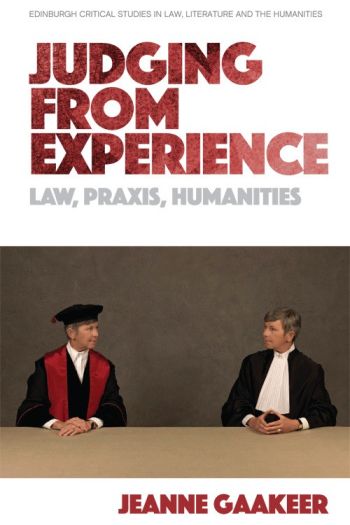
A unique application of philosophical hermeneutics, literary theory and narratology to the practice of judging.
Combining her expertise in legal theory and her judicial practice in criminal law in a Court of Appeal, Jeanne Gaakeer explores the intertwinement of legal theory and practice to develop a humanities-inspired methodology for both the academic interdisciplinary study of law and literature and for legal practice. This volume addresses judgment and interpretation as a central concern within the field of law, literature and humanities. It is not only a study of law as praxis that combines academic legal theory with judicial practice, but proposes both as central to humanistic jurisprudence and as a training in the conduct of public life.
Drawing extensively on philosophical and legal scholarship and through analysis of literary works, Gaakeer proposes a perspective on law as part of the humanities that will inspire legal professionals, scholars and advanced students of law alike. Literary case studies include: Gustave Flaubert's Bouvard and P cuchet Robert Musil's The Man without Qualities Dutch poet Gerrit Achterberg's asylum poems Pat Barker's Regeneration John Coetzee's Disgrace Ian McEwan's The Children Act Michel Houellebecq's Atomised Juli Zeh's The Method